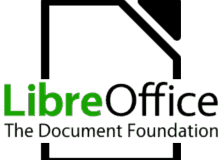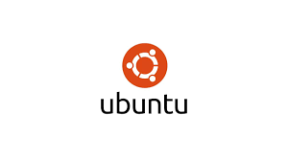1. Get Current Linux Kernel Version.
uname -srm
tutorialspots# uname -srm Linux 3.10.0-514.21.2.el7.x86_64 x86_64
2. Get Current Linux OS Version.
cat /etc/*release
tutorialspots# cat /etc/*release CentOS Linux release 7.9.2009 (Core) NAME="CentOS Linux" VERSION="7 (Core)" ID="centos" ID_LIKE="rhel fedora" VERSION_ID="7" PRETTY_NAME="CentOS Linux 7 (Core)" ANSI_COLOR="0;31" CPE_NAME="cpe:/o:centos:centos:7" HOME_URL="https://www.centos.org/" BUG_REPORT_URL="https://bugs.centos.org/" CENTOS_MANTISBT_PROJECT="CentOS-7" CENTOS_MANTISBT_PROJECT_VERSION="7" REDHAT_SUPPORT_PRODUCT="centos" REDHAT_SUPPORT_PRODUCT_VERSION="7" CentOS Linux release 7.9.2009 (Core) CentOS Linux release 7.9.2009 (Core)
3. How To Upgrade Linux Kernel In CentOS 7?
3.1 Update CentOS Packages.
yum -y update
tutorialspots# yum -y update Loaded plugins: fastestmirror Loading mirror speeds from cached hostfile * base: centos.mirror.constant.com * epel: ftp-nyc.osuosl.org * extras: centos.mirror.constant.com * remi-safe: mirror.oxilion.nl * updates: centos.mirror.constant.com http://yum.mariadb.org/10.0/centos7-amd64/repodata/repomd.xml: [Errno 14] HTTP Error 404 - Not Found Trying other mirror. To address this issue please refer to the below wiki article https://wiki.centos.org/yum-errors If above article doesn't help to resolve this issue please use https://bugs.centos.org/. No packages marked for update
yum -y install yum-plugin-fastestmirror
http://tutorialspots.com/wp-admin/post-new.php# yum -y install yum-plugin-fastestmirror Loaded plugins: fastestmirror Loading mirror speeds from cached hostfile * base: centos.mirror.constant.com * epel: ftp-nyc.osuosl.org * extras: centos.mirror.constant.com * remi-safe: mirror.oxilion.nl * updates: centos.mirror.constant.com http://yum.mariadb.org/10.0/centos7-amd64/repodata/repomd.xml: [Errno 14] HTTP Error 404 - Not Found Trying other mirror. To address this issue please refer to the below wiki article https://wiki.centos.org/yum-errors If above article doesn't help to resolve this issue please use https://bugs.centos.org/. Package yum-plugin-fastestmirror-1.1.31-54.el7_8.noarch already installed and latest version Nothing to do
3.2 Add ELRepo Repository.
sudo rpm --import https://www.elrepo.org/RPM-GPG-KEY-elrepo.org
sudo rpm -Uvh https://www.elrepo.org/elrepo-release-7.0-3.el7.elrepo.noarch.rpm
tutorialspots# sudo rpm --import https://www.elrepo.org/RPM-GPG-KEY-elrepo.org tutorialspots# sudo rpm -Uvh https://www.elrepo.org/elrepo-release-7.0-3.el7.elrepo.noarch.rpm Retrieving https://www.elrepo.org/elrepo-release-7.0-3.el7.elrepo.noarch.rpm Preparing... ################################# [100%] Updating / installing... 1:elrepo-release-7.0-3.el7.elrepo ################################# [100%]
3.3 Check ELRepo Repository
yum repolist
tutorialspots# yum repolist Loaded plugins: fastestmirror Loading mirror speeds from cached hostfile * base: centos.mirror.constant.com * elrepo: ftp.nluug.nl * epel: ftp-nyc.osuosl.org * extras: centos.mirror.constant.com * remi-safe: mirror.oxilion.nl * updates: centos.mirror.constant.com elrepo | 3.0 kB 00:00 http://yum.mariadb.org/10.0/centos7-amd64/repodata/repomd.xml: [Errno 14] HTTP Error 404 - Not Found Trying other mirror. To address this issue please refer to the below wiki article https://wiki.centos.org/yum-errors If above article doesn't help to resolve this issue please use https://bugs.centos.org/. elrepo/primary_db | 547 kB 00:00 repo id repo name status base/7/x86_64 CentOS-7 - Base 10,072 elrepo ELRepo.org Community Enterprise Linux Repository - el7 161 epel/x86_64 Extra Packages for Enterprise Linux 7 - x86_64 13,753 extras/7/x86_64 CentOS-7 - Extras 512 !mariadb MariaDB 43 remi-safe Safe Remi's RPM repository for Enterprise Linux 7 - x86_ 4,809 updates/7/x86_64 CentOS-7 - Updates 3,842 repolist: 33,192
3.4 List Available Kernels in ELRepo
yum list available --disablerepo='*' --enablerepo=elrepo-kernel
tutorialspots# yum list available --disablerepo='*' --enablerepo=elrepo-kernel Loaded plugins: fastestmirror Loading mirror speeds from cached hostfile * elrepo-kernel: mirror.koddos.net Available Packages elrepo-release.noarch 7.0-5.el7.elrepo elrepo-kernel kernel-lt.x86_64 5.4.196-1.el7.elrepo elrepo-kernel kernel-lt-devel.x86_64 5.4.196-1.el7.elrepo elrepo-kernel kernel-lt-doc.noarch 5.4.196-1.el7.elrepo elrepo-kernel kernel-lt-headers.x86_64 5.4.196-1.el7.elrepo elrepo-kernel kernel-lt-tools.x86_64 5.4.196-1.el7.elrepo elrepo-kernel kernel-lt-tools-libs.x86_64 5.4.196-1.el7.elrepo elrepo-kernel kernel-lt-tools-libs-devel.x86_64 5.4.196-1.el7.elrepo elrepo-kernel kernel-ml.x86_64 5.18.1-1.el7.elrepo elrepo-kernel kernel-ml-devel.x86_64 5.18.1-1.el7.elrepo elrepo-kernel kernel-ml-doc.noarch 5.18.1-1.el7.elrepo elrepo-kernel kernel-ml-headers.x86_64 5.18.1-1.el7.elrepo elrepo-kernel kernel-ml-tools.x86_64 5.18.1-1.el7.elrepo elrepo-kernel kernel-ml-tools-libs.x86_64 5.18.1-1.el7.elrepo elrepo-kernel kernel-ml-tools-libs-devel.x86_64 5.18.1-1.el7.elrepo elrepo-kernel perf.x86_64 5.18.1-1.el7.elrepo elrepo-kernel python-perf.x86_64 5.18.1-1.el7.elrepo elrepo-kernel
We see that Linux 5 kernel is the latest mainline release.
3.5 check all available kernel versions in the Grub2.
tutorialspots# cat /etc/grub2.cfg|awk -F\' '$1=="menuentry " {print i++ " : " $2}'
0 : CentOS Linux (3.10.0-1160.66.1.el7.x86_64) 7 (Core)
1 : CentOS Linux 7 Rescue 81e366ea98b8433281e08f1ce25e9b27 (3.10.0-514.21.2.el7.x86_64)
2 : CentOS Linux (3.10.0-514.21.2.el7.x86_64) 7 (Core)
3 : CentOS Linux (3.10.0-514.16.1.el7.x86_64) 7 (Core)
4 : CentOS Linux (3.10.0-514.el7.x86_64) 7 (Core)
5 : CentOS Linux (0-rescue-e4293fb2b8c749e391cbb8733a6a43f0) 7 (Core)
3.6 Install New CentOS Kernel Version.
If you’d like to use mainline release
yum --enablerepo=elrepo-kernel install kernel-ml
If you’d like to use long term support (Recommended)
yum --enablerepo=elrepo-kernel install kernel-lt
3.7 similar to 3.5
3.8 Configure Grub2 on CentOS.
3.8.1 Change the default kernel when Linux is started.
Method 1:
sudo grub2-set-default 0
Method 2: edit file /etc/default/grub
sudo nano /etc/default/grub
change
GRUB_DEFAULT=saved
to
GRUB_DEFAULT=0
3.8.2 Run grub2-mkconfig command to generate the grub2 config
sudo grub2-mkconfig -o /boot/grub2/grub.cfg
3.8.3 Reboot the Linux
sudo reboot
Done, now you can use Step 1 to check your current Linux kernel version
3.9 Remove The Old Linux Kernel.
If you do not need the old Linux kernel anymore, you can remove it
yum install yum-utils
package-cleanup --oldkernels



